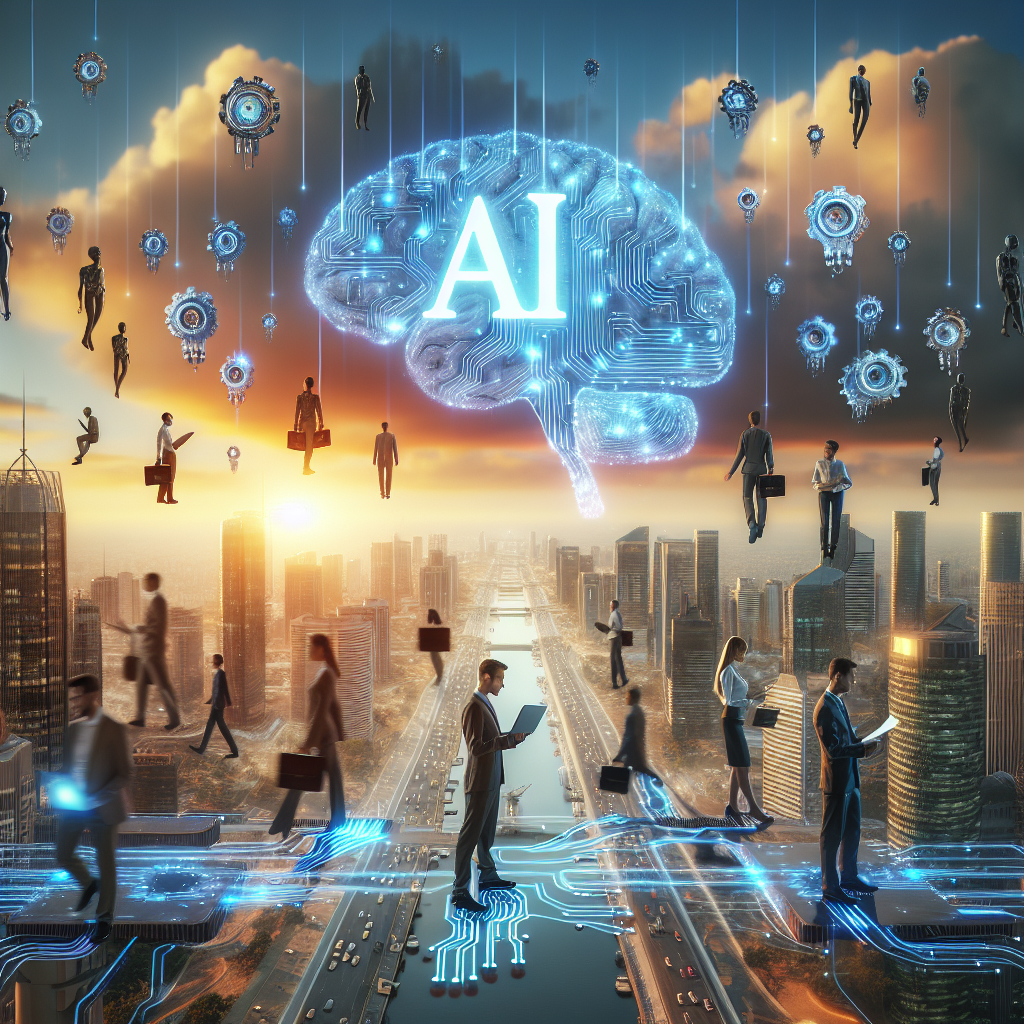Artificial General Intelligence (AGI) is a concept that has been the subject of much speculation and debate in recent years. As the field of artificial intelligence continues to advance at a rapid pace, many experts believe that AGI could have a profound impact on society and the job market. In this article, we will explore the potential impact of AGI on society and jobs, and address some common questions and concerns surrounding this emerging technology.
What is AGI?
AGI, also known as strong AI or human-level AI, refers to a type of artificial intelligence that possesses the ability to understand and learn any intellectual task that a human being can. Unlike narrow AI, which is designed to perform specific tasks or solve particular problems, AGI is capable of generalizing its intelligence across a wide range of domains and tasks.
The development of AGI has long been a goal of the artificial intelligence community, with researchers working to create machines that can think, reason, and learn like humans. While AGI is still largely theoretical at this point, many experts believe that it has the potential to revolutionize society in ways that we can only begin to imagine.
Potential Impact of AGI on Society
The potential impact of AGI on society is vast and far-reaching. From healthcare to transportation to education, AGI has the potential to transform virtually every aspect of our lives. Here are some of the key ways in which AGI could impact society:
1. Automation of Jobs: One of the most significant potential impacts of AGI is the automation of jobs. As machines become increasingly capable of performing complex tasks, many traditional jobs could be at risk of being replaced by AI-powered systems. This could lead to widespread unemployment and economic disruption, as workers are displaced by machines that can perform their jobs more efficiently and cost-effectively.
2. Increased Productivity: On the other hand, AGI could also lead to a significant increase in productivity across a wide range of industries. By automating tedious and repetitive tasks, AGI could free up human workers to focus on more creative and strategic endeavors, leading to greater innovation and efficiency in the workplace.
3. Improved Healthcare: AGI has the potential to revolutionize the healthcare industry by enabling more accurate diagnoses, personalized treatment plans, and predictive analytics. By analyzing vast amounts of data and identifying patterns that human doctors may overlook, AGI could help improve patient outcomes and reduce healthcare costs.
4. Enhanced Education: AGI could also transform the field of education by providing personalized learning experiences for students. By adapting to each student’s individual needs and learning style, AGI could help educators deliver more effective instruction and support academic success for all students.
5. Ethical and Social Implications: As AGI becomes more advanced, there are also concerns about the ethical and social implications of this technology. From privacy concerns to potential biases in AI algorithms, there are many questions that need to be addressed as we continue to develop AGI.
FAQs
Q: Will AGI replace all human jobs?
A: While it is possible that AGI could automate many traditional jobs, it is unlikely that it will replace all human workers. There will always be a need for human creativity, empathy, and critical thinking skills that machines cannot replicate.
Q: What steps can be taken to mitigate the potential negative impacts of AGI on jobs?
A: Governments, businesses, and individuals can take steps to prepare for the impact of AGI on jobs. This may include investing in education and training programs to help workers develop skills that are less likely to be automated, as well as implementing policies to ensure that the benefits of AI are shared equitably across society.
Q: How can we ensure that AGI is developed ethically and responsibly?
A: It is important for researchers, developers, and policymakers to work together to ensure that AGI is developed in a way that is ethical and responsible. This may include implementing robust ethical guidelines, conducting thorough risk assessments, and engaging with stakeholders to address concerns and mitigate potential risks.
In conclusion, the potential impact of AGI on society and jobs is vast and complex. While there are many potential benefits to be gained from the development of AGI, there are also significant risks and challenges that need to be addressed. By working together to develop AGI in a responsible and ethical manner, we can harness the full potential of this technology to create a better future for all.

